When Jeff Rosener walked out the door after meeting with a mental health counselor for the first time, he didn’t know if the planned two-times-per-week therapy schedule was going to help.
“To be honest, I was skeptical,” said Rosener, a captain in the Minneapolis Fire Department. “I’m from the Marine Corps, which (has the mentality of) suck it up, just drink like the rest of us, take some Advil and rub some dirt in it.”
But Rosener stuck to the schedule and quickly realized how much his life – both personally and professionally – benefited from reaching out for help. Rosener’s sessions were made possible by the MnFIRE Assistance Program (MAP), which offers free, confidential help for Minnesota firefighters and their families 24/7 with emotional health, stress and more. The MAP is part of the Hometown Heroes Assistance Program (HHAP), funded by a $4 million annual appropriation from the state.
As part of these no-cost benefits, every Minnesota firefighter and their family members can access up to five counseling visits per issue per year, with additional support ensured as needed, with specialized mental health professionals who have been trained to address the unique experiences of the fire service.
Earlier in 2024, Rosener hit a low point in many of his relationships, especially with his wife and their five kids, ages 13 to 2. One evening that spring, his wife asked to separate.
“I didn’t sleep at all that night and then went to work the next morning,” said Rosener, who has been in the fire service since 2010. “I said to my chief, ‘I need some help.’ I didn’t know if I needed to call a divorce lawyer or a therapist, but I was in a bad way.”
The Minneapolis Fire Chief immediately took action, keeping Rosener off the truck and connecting him with the department’s MnFIRE liaison. While Rosener had heard of MnFIRE and had seen a poster up in the fire station, he didn’t realize all the benefits available to him as an active firefighter. This was the first time Rosener received support from MnFIRE.
“Within two hours of me asking for help, I was in the office talking to my mental health provider, Melinda,” Rosener said. “It wasn’t crisis intervention; it was just me saying I need to save my marriage. That’s how it all started.”
During that first meeting, Rosener and his provider established a plan of care, including therapy sessions twice a week and taking six months off firefighting duty.
“The MnFIRE liaison told me not to worry about sick time and just focus on myself and my family,” Rosener said. “I felt 1,000% supported.”
Rosener’s therapy sessions used a combination of Eye Movement Desensitization and Reprocessing (EMDR) therapy and acceleration resolution therapy.
“Once I started it, I started immediately unpacking some of the trauma, he said. “It was explained to me that it’s just like a physical injury – how your brain takes days to even process what we see before we can even make sense of it. It really opened my eyes.”
Rosener also learned tools – like grounding, changing body chemistry and changing his physical environment – to help him cope with everyday life.
“When I feel anger coming on, I recognize it and use these tools before seeing red,” Rosener said.
For example, when Rosener starts to get agitated, he will take a break and go to his garage to organize his tools or take the dog for a walk to calm himself down.
Along with tools to cope, therapy has also given Rosener a new perspective on life.
“I realized I am very lucky to have the greatest job in the world, but no matter what, my family comes first,” he said. “I won’t miss another important day. I want to be there for those memories.”
Ten months after his initial outreach for help, Rosener said he and his family are together and doing a lot better, thanks to therapy sessions through MnFIRE and doing the work to make a change. Rosener was also able to return to full duty without restrictions thanks to the help he received through MnFIRE.
“To ask for help was a big deal for me,” he said. “I’m glad I did it, my family is glad I did it. But it’s always going to be a work in process. Having those tools is a great asset.”
His peers in the fire service have also been supportive of Rosener’s road to recovery. As more people in his profession talk about mental health support, Rosener hopes getting help when needed becomes the norm. He knows both sides as a skeptic turned believer in therapy.
“The stigma of suck it up and the perceived weakness needs to die before more of us (in the fire service) do,” Rosener said.
Confidential help is available any time for any Minnesota firefighter and their family through the MnFIRE Assistance Program. For more details or for help, call 888-784-6634 or click here.

